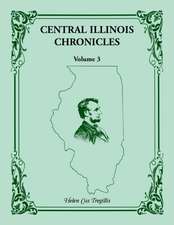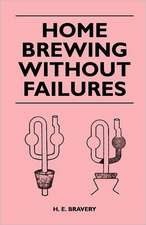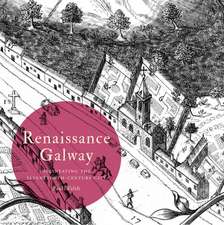The Marshall Plan: Dawn of the Cold War
Autor Benn Steilen Limba Engleză Paperback – 12 oct 2021
| Toate formatele și edițiile | Preț | Express |
|---|---|---|
| Paperback (2) | 98.81 lei 11-16 zile | +46.51 lei 6-12 zile |
| OUP OXFORD – 12 oct 2021 | 98.81 lei 11-16 zile | +46.51 lei 6-12 zile |
| Simon&Schuster – 26 feb 2019 | 131.13 lei 3-5 săpt. | |
| Hardback (1) | 184.13 lei 11-16 zile | +73.15 lei 6-12 zile |
| OUP OXFORD – 15 mar 2018 | 184.13 lei 11-16 zile | +73.15 lei 6-12 zile |
Preț: 98.81 lei
Preț vechi: 112.71 lei
-12% Nou
Puncte Express: 148
Preț estimativ în valută:
18.91€ • 20.22$ • 15.76£
18.91€ • 20.22$ • 15.76£
Carte disponibilă
Livrare economică 17-22 martie
Livrare express 12-18 martie pentru 56.50 lei
Preluare comenzi: 021 569.72.76
Specificații
ISBN-13: 9780192843104
ISBN-10: 0192843109
Pagini: 624
Dimensiuni: 159 x 234 x 44 mm
Greutate: 0.79 kg
Editura: OUP OXFORD
Colecția OUP Oxford
Locul publicării:Oxford, United Kingdom
ISBN-10: 0192843109
Pagini: 624
Dimensiuni: 159 x 234 x 44 mm
Greutate: 0.79 kg
Editura: OUP OXFORD
Colecția OUP Oxford
Locul publicării:Oxford, United Kingdom
Notă biografică
Benn Steil is Senior Fellow and Director of International Economics at the Council on Foreign Relations. His previous book, the prize-winning The Battle of Bretton Woods: John Maynard Keynes, Harry Dexter White, and the Making of a New World Order (2014), was called "a triumph of economic and diplomatic history" by the Financial Times, "a superb history" by the Wall Street Journal, and "the gold standard on its subject" by the New York Times.
Recenzii
Painstakingly researched and well-written...a resounding success.
Refreshingly heterodox new history...
An authoritative, detailed, and very revealing study.
An excellent new book by Benn Steil... Steil's account picks its way through all of the arguments with quiet skill. There are no shocks or revelations here, but Steil's mastery of both the sources and the narrative is exemplary.
Benn Steil has read widely and used archives in both Europe and the USA to write what many will consider to be the definitive history of the Marshall Plan... Steil has expert command of his sources and writes with clarity about a complex set of relations.
Big, serious, and thoroughly intelligent.
Steil is [also] a terrific writer... A highly recommended read.
[An] emmensely erudite book.
The Marshall Plan: Dawn of the Cold War is Benn Steil's second book on global politics and economics in the 1940s. Like The Battle of Bretton Woods (2013), which recounted how the US created the post-second world war financial and monetary order, The Marshall Plan is elegant in style and impressive in insights. Steil, director of international economics at the Council on Foreign Relations, has an enviable gift for presenting complex economic and geopolitical issues in crisp, readable prose.
Brilliant
This is a gripping, complex, and critically important story that is told with clarity and precision. The book is superbly documented and reflects an extraordinary level of research.
Drawing extensively on U.S. archival material as well as some Russian, British, French, German, Serbian and Czech sources, Steil tells the story of not just the development of the Marshall Plan but also the division of Germany, the founding of NATO and, as the subtitle of his book indicates, the dawn of the Cold War. Steil's account is the most detailed yet... Steil is at his best when describing the myriad agencies and policies that oversaw and executed the Marshall Plan... He writes elegantly on economics, explaining complicated mechanisms used to fuel the Western European recovery, such as implementation of counterpart funds, the creation of the European Payments Union and the cancellation of German debt.
It is hard to overstate the importance of [Steil's] subject to postwar history, because Marshall sowed the seeds of the creation of the European Union, and more immediately led to the establishment of Nato... The author tells the tale with admirable clarity and conviction.
[An] important examination of the Marshall Plan... An excellent recounting of an ambitious, huge program that helped rebuild and transform Europe.
Steil's fresh perspective on a well-tilled subject will be appreciated by specialists for its wide-ranging analysis and welcomed by general readers for its engrossing style and accessibility.
A fresh perspective on the Marshall Plan ... Though scholars have covered the subject many times before, general readers will do well to choose this lively, astute account ... Steil writes a vivid, opinionated narrative full of colorful characters, dramatic scenarios, villains, and genuine heroes, and the good guys won. It will be the definitive account for years to come.
Benn Steil has made clarifying complex subjects a specialty: first with his well-received Battle of Bretton Woods, and now with this comprehensive history of the Marshall Plan. Drawing on an equally keen grasp of diplomacy, economics, and grand strategy, Steil sets a new standard for our understanding, not just of the Cold War, but also of the post-Cold War era, where the future of Europe and the role of the United States in it are once again at stake. An outstanding and certainly timely accomplishment.
In his new book, Benn Steil tells a double story: that of the launch of the Marshall Plan, the unprecedented American program to help rebuild Europe after World War II, and also of the various Soviet attempts to thwart and counter it. Enlivened by brilliantly wrought pen portraits, this gripping narrative adds a whole new perspective on one of the most fateful periods in world history.
The Marshall Plan is a remarkably insightful and beautifully written work of diplomatic and economic history. Leaders and pundits keep calling for new Marshall Plans around the globe, but how many actually understand what the real one was about, how it was created, and what it achieved? This book will open eyes and minds.
Benn Steil's fascinating book places the transformative design and huge impact of the Marshall Plan in the context of the early Cold War drama. Engaging, detailed, and well-researched, it takes us behind closed doors in both Europe and the United States, illuminating how the plan was created and how it changed the world. The book's relevance extends well beyond its new historical insights, showing how offshoots of the plan continue to shape modern-day Europe. It also sheds light on how open mindsets and intelligent economic architecture can help anchor an increasingly fluid and uncertain global economy.
In this fascinating book, Benn Steil returns to one of the enduring achievements of American diplomacy: the Marshall Plan to rebuild European allies that were close to collapse after World War II. A lucid and engaging writer, Steil has a rare gift for blending economic and political history, showing how the Marshall Plan dashed Soviet hopes that the United States would retreat from Europe. At a time when the radical Trump administration is trashing American alliances around the globe, this book is a powerful reminder of how hard it was to build them, and how dangerous the world can be without them.
Compelling and authoritative, The Marshall Plan is a first-rate work of history. But it also bears powerfully on the present, reminding us that if soft power is the power to attract, the Marshall Plan is a stunningly successful example of it.
Benn Steil's carefully researched new book reminds us of the economic uncertainties and political turmoil that surrounded U.S. foreign policy-making in the aftermath of World War II. In the end, the right choices were made, first in developing the Marshall Plan providing economic support for economically devastated European allies, and then building in NATO a strong Western military alliance. Here we are seventy years later in very different circumstances, economic and military. The United States and its allies are strongly challenged to find new approaches to renewing the alliances. May our leaders benefit from the practical wisdom and ideas of seventy years ago.
The Marshall Plan is one of the great success stories of U.S. foreign policy. Benn Steil's well-researched and insightful account reminds us that this iconic example of strategic foresight and imagination was anything but inevitable. On the contrary, his book shows that the Plans creation, refinement, implementation, and eventual success required perseverance, political savvy, and plenty of plain good luck. The moral for our era is clear: successful foreign policies require creative and dedicated public servants and do not emerge without them.
The Marshall Plan has become a favorite analogy for policymakers. Yet few know much about it. Finally, Benn Steil provides a readable, authoritative account of what it was, what it did, and what it achieved.
Refreshingly heterodox new history...
An authoritative, detailed, and very revealing study.
An excellent new book by Benn Steil... Steil's account picks its way through all of the arguments with quiet skill. There are no shocks or revelations here, but Steil's mastery of both the sources and the narrative is exemplary.
Benn Steil has read widely and used archives in both Europe and the USA to write what many will consider to be the definitive history of the Marshall Plan... Steil has expert command of his sources and writes with clarity about a complex set of relations.
Big, serious, and thoroughly intelligent.
Steil is [also] a terrific writer... A highly recommended read.
[An] emmensely erudite book.
The Marshall Plan: Dawn of the Cold War is Benn Steil's second book on global politics and economics in the 1940s. Like The Battle of Bretton Woods (2013), which recounted how the US created the post-second world war financial and monetary order, The Marshall Plan is elegant in style and impressive in insights. Steil, director of international economics at the Council on Foreign Relations, has an enviable gift for presenting complex economic and geopolitical issues in crisp, readable prose.
Brilliant
This is a gripping, complex, and critically important story that is told with clarity and precision. The book is superbly documented and reflects an extraordinary level of research.
Drawing extensively on U.S. archival material as well as some Russian, British, French, German, Serbian and Czech sources, Steil tells the story of not just the development of the Marshall Plan but also the division of Germany, the founding of NATO and, as the subtitle of his book indicates, the dawn of the Cold War. Steil's account is the most detailed yet... Steil is at his best when describing the myriad agencies and policies that oversaw and executed the Marshall Plan... He writes elegantly on economics, explaining complicated mechanisms used to fuel the Western European recovery, such as implementation of counterpart funds, the creation of the European Payments Union and the cancellation of German debt.
It is hard to overstate the importance of [Steil's] subject to postwar history, because Marshall sowed the seeds of the creation of the European Union, and more immediately led to the establishment of Nato... The author tells the tale with admirable clarity and conviction.
[An] important examination of the Marshall Plan... An excellent recounting of an ambitious, huge program that helped rebuild and transform Europe.
Steil's fresh perspective on a well-tilled subject will be appreciated by specialists for its wide-ranging analysis and welcomed by general readers for its engrossing style and accessibility.
A fresh perspective on the Marshall Plan ... Though scholars have covered the subject many times before, general readers will do well to choose this lively, astute account ... Steil writes a vivid, opinionated narrative full of colorful characters, dramatic scenarios, villains, and genuine heroes, and the good guys won. It will be the definitive account for years to come.
Benn Steil has made clarifying complex subjects a specialty: first with his well-received Battle of Bretton Woods, and now with this comprehensive history of the Marshall Plan. Drawing on an equally keen grasp of diplomacy, economics, and grand strategy, Steil sets a new standard for our understanding, not just of the Cold War, but also of the post-Cold War era, where the future of Europe and the role of the United States in it are once again at stake. An outstanding and certainly timely accomplishment.
In his new book, Benn Steil tells a double story: that of the launch of the Marshall Plan, the unprecedented American program to help rebuild Europe after World War II, and also of the various Soviet attempts to thwart and counter it. Enlivened by brilliantly wrought pen portraits, this gripping narrative adds a whole new perspective on one of the most fateful periods in world history.
The Marshall Plan is a remarkably insightful and beautifully written work of diplomatic and economic history. Leaders and pundits keep calling for new Marshall Plans around the globe, but how many actually understand what the real one was about, how it was created, and what it achieved? This book will open eyes and minds.
Benn Steil's fascinating book places the transformative design and huge impact of the Marshall Plan in the context of the early Cold War drama. Engaging, detailed, and well-researched, it takes us behind closed doors in both Europe and the United States, illuminating how the plan was created and how it changed the world. The book's relevance extends well beyond its new historical insights, showing how offshoots of the plan continue to shape modern-day Europe. It also sheds light on how open mindsets and intelligent economic architecture can help anchor an increasingly fluid and uncertain global economy.
In this fascinating book, Benn Steil returns to one of the enduring achievements of American diplomacy: the Marshall Plan to rebuild European allies that were close to collapse after World War II. A lucid and engaging writer, Steil has a rare gift for blending economic and political history, showing how the Marshall Plan dashed Soviet hopes that the United States would retreat from Europe. At a time when the radical Trump administration is trashing American alliances around the globe, this book is a powerful reminder of how hard it was to build them, and how dangerous the world can be without them.
Compelling and authoritative, The Marshall Plan is a first-rate work of history. But it also bears powerfully on the present, reminding us that if soft power is the power to attract, the Marshall Plan is a stunningly successful example of it.
Benn Steil's carefully researched new book reminds us of the economic uncertainties and political turmoil that surrounded U.S. foreign policy-making in the aftermath of World War II. In the end, the right choices were made, first in developing the Marshall Plan providing economic support for economically devastated European allies, and then building in NATO a strong Western military alliance. Here we are seventy years later in very different circumstances, economic and military. The United States and its allies are strongly challenged to find new approaches to renewing the alliances. May our leaders benefit from the practical wisdom and ideas of seventy years ago.
The Marshall Plan is one of the great success stories of U.S. foreign policy. Benn Steil's well-researched and insightful account reminds us that this iconic example of strategic foresight and imagination was anything but inevitable. On the contrary, his book shows that the Plans creation, refinement, implementation, and eventual success required perseverance, political savvy, and plenty of plain good luck. The moral for our era is clear: successful foreign policies require creative and dedicated public servants and do not emerge without them.
The Marshall Plan has become a favorite analogy for policymakers. Yet few know much about it. Finally, Benn Steil provides a readable, authoritative account of what it was, what it did, and what it achieved.











